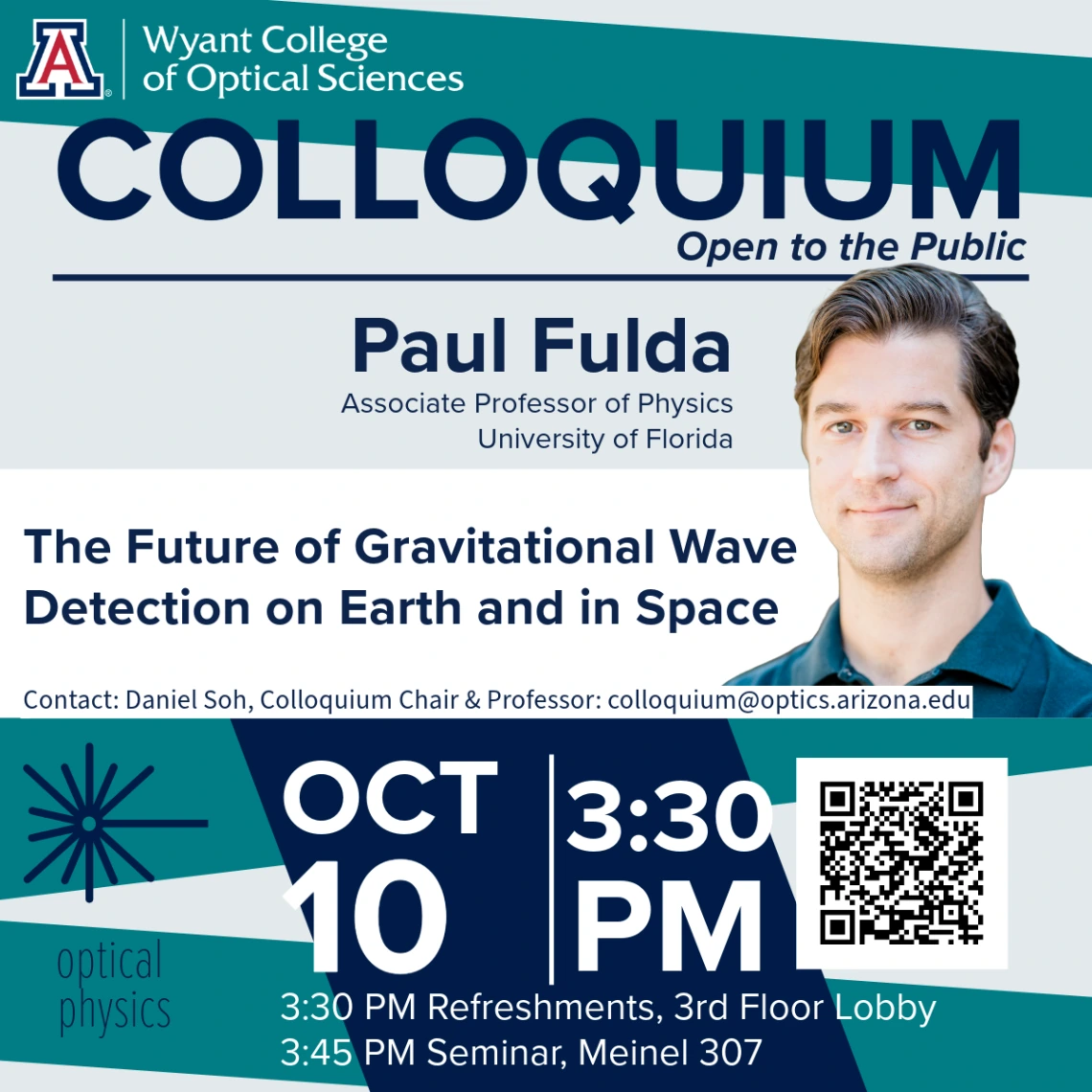
When
Where
CANCELED DUE TO WEATHER
Title
The Future of Gravitational Wave Detection on Earth and in Space
Abstract
Following a decade of unprecedented success through LIGO and Virgo's observations of compact binary coalescences, gravitational wave astronomy is now recognized as a key observational window in our continued efforts to understand the Universe and our place within it.
Far from resting on their laurels though, the gravitational wave community is forging ahead with major plans for the future. The proposed "ultimate ground-based gravitational wave detector facility" Cosmic Explorer recently received a boost with significant funding from the NSF to proceed with a conceptual design. The space-based gigameter-scale laser interferometer LISA recently passed the Mission Adoption Review by the European Space Agency and will begin construction imminently.
In this talk I will discuss the key science targets for Cosmic Explorer, and some of the technical challenges it faces. I will include a focus on the optical design of the 40km laser interferometers, which is currently underway as part of a multi-institute collaboration. I will also outline the LISA mission concept, highlighting University of Florida and University of Arizona's roles in validating a key NASA deliverable to the mission: the telescopes that send and receive laser light across the vast distance between the three spacecraft. As we look forward to the 2030's, we can also consider some of the exciting multi-wavelength gravitational wave science that can be done with both instruments operating in concert.
Bio
Paul Fulda received his PhD from the University of Birmingham (UK) in 2012, where he worked under the supervision of Andreas Freise on laser interferometry techniques for gravitational wave detectors. He then moved to the University of Florida for a postdoc with David Tanner and Guido Mueller in the LIGO group during the installation and comissioning of Advanced LIGO. Paul then took a visiting scientist position at NASA Goddard Space Flight Center with Ira Thorpe, working on experimental demonstrations of heterodyne interferometry for the LISA mission. He then returned to University of Florida to join the physics faculty in 2018, where he continues to do instrument science research for ground-based and space-based laser interferometers for gravitational wave detection.
Can't Join Us In Person?
Register for the Zoom Webinar!
Subscribe to Upcoming Colloquium Announcements
Visit our website for future lecture dates and speaker information
